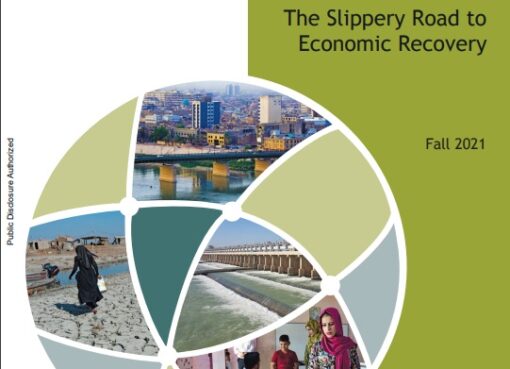There is a big debate among economists, why are the resource-rich economies growing slower than resource-poor economies? Which is making this puzzle more difficult, there are two groups of resources-rich abundance countries one group grow more than other ones. For instance, the Arabic Gulf, Nigeria, and Venezuela are growing slower than Botswanan, Norway, and Australia, but both groups are resources-rich countries. Is it the resources curse scenario? Or is it weak institutions? To study this puzzle, I have observed two groups of studies. The first group of old studies claim that the problem of low growth in resources-rich economics comes from the scenario of Dutch disease, but the second group or more recent studies strongly refuse the claim by the first group. They have debated that the problem comes from poor institutional quality. We totally agree with both groups, yet we have another scenario. The resources-rich countries suffer from Dutch diseases problem and from poor quality of institutions. We strongly criticize the most significant a series of studies by Sachs and Warner (1995, 1997a,1997b, 2001). They have debated that the Dutch Disease scenario is a possible mechanism of the resource curse, which is the labor factor and capital factor move from the manufacturing and service sectors to the natural resources sector. Thus, the negative effect of natural resources on economic growth is direct effect. We argue that there is a positive relationship between most types of natural resources (oil) and economic growth. We claim also this a positive relationship holds true even after controlling for significant variables found to be for economic growth. We are not only debating that the main symptoms of the resources curse come from the weakness of institutional quality, but also come from Dutch disease scenario. We see that the indirect effect of natural resources on economic growth. To prove this association, we have used multiple institutions and resources. However, we set up three chapters: The first chapter discusses how natural resources (oil rents) impact institutional quality (control of corruption) in the Middle East and North Africa (MENA). We discuss that is there any possibility of interaction terms between oil rents and rule of law from one side, and between oil rents and democracy from another side to avoid high corruption in MENA countries? Our findings confirm: : First, the oil rents can highly feed corruption. Second, our estimates confirm that the relationship between oil rents and corruption depends on the quality of institutions (rule of law), which oil rents avoid to feed corruption unless the mean of quality of law rule is (0.33). Furthermore, our findings suggest that the autocracy is better policy in the region. In the second chapter, to approach to our goal, the main symptoms of the resource curse phenomenon in MENA. The findings confirm that the economic growth in MENA is greatly and positively influence by oil rents, but we have blamed poor institutions leading to the phenomenon of resources curse. When the weakness of institutions reaches to certain limits, oil rents will start to create a negative impact on growth. This result seems to confirm the theory of the natural resource curse and to confirm that resources-rich countries are associated with poor institutions. Moreover, the interaction terms between diversification and oil rent can promote economic growth. In the third chapter, we discuss how the interaction terms between various types of natural resources, petroleum, natural coal, and coal, and political stability influence economic growth? The findings have diagnosed there are dissimilar effects by petroleum, natural gas, and coal on economic growth.
(*) Dissertation of Mr. Ahmed Hussein Naser, for the Doctor of Philosophy degree in Economics, presented on May 9, 2020, at Southern Illinois University Carbondale.
Download the document as PDF file








Comment here